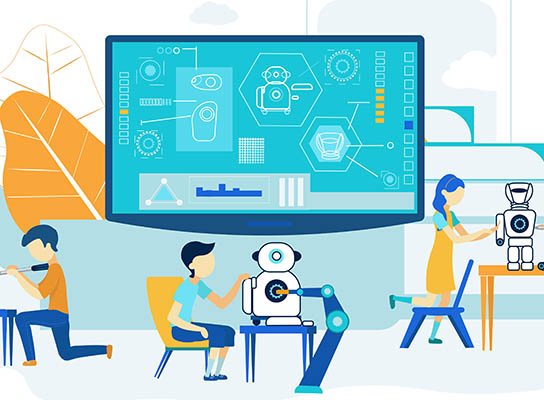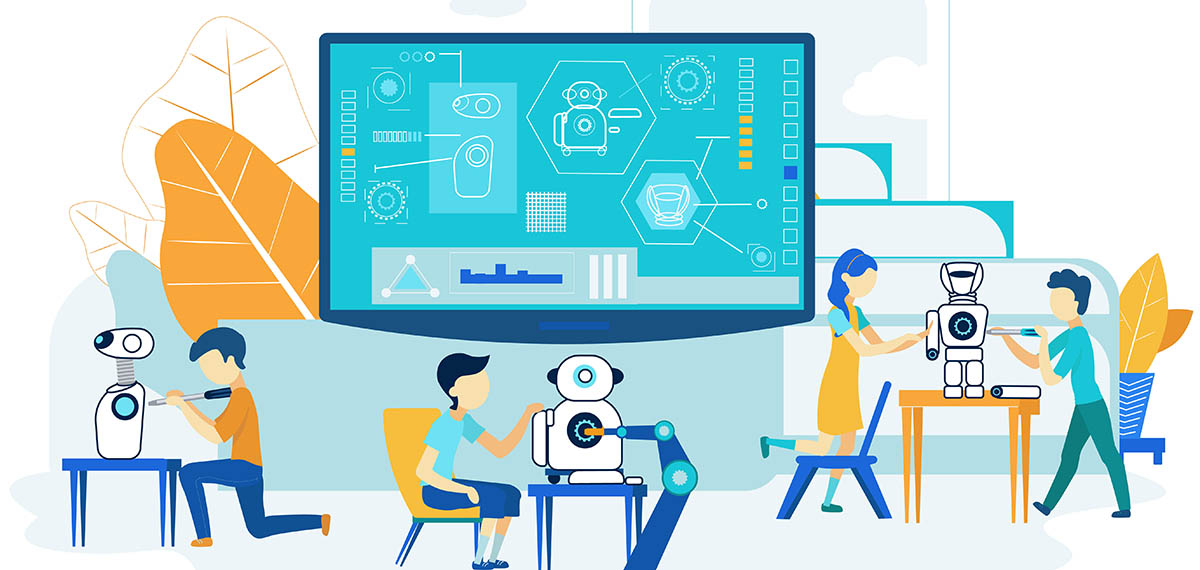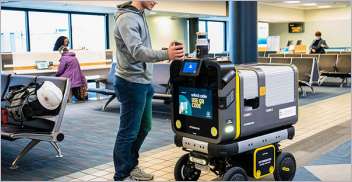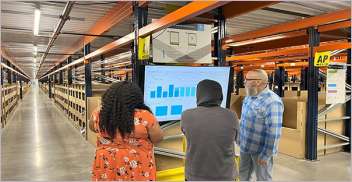As a senior associate engineer at the Autonomous Robotics Research Centre in Abu Dhabi, Fatima Al Nuaimi is hoping to use her skills to help solve some of the world’s most pressing challenges. She’s working with her team to make advancements in accessibility technology and has insights into how robots can help flight climate change.
In advance of International Women’s Day on March 8, Al Nuaimi spoke with Robotics 24/7 about her research, how robotics can help improve sustainability, getting students interested in the technology, and the role the United Arab Emirates' government has played in encouraging women to pursue careers in robotics.
Robots could make the world greener
What is your experience working at the Autonomous Robotics Research Centre (ARRC)?

Al Nuaimi: At the Autonomous Robotics Research Centre, I support the team on different projects that are geared toward controlling a wheelchair using a brain-computer interface. I am still working on improving my skills in various topics as an engineer and researcher.
My experience at ARRC so far has been first-rate. My team makes each one of us feel like family, and everyone is always happy to help others and share knowledge.
What types of projects are you working on every day?
Al Nuaimi: I am involved in different types of projects. For instance, I am also working on my research for the master's program, as well as on prototypes, communication, etc.
What role does robotics play in shaping a more sustainable future?
Al Nuaimi: Industries and companies have been trying to utilize robots to improve their processes, allowing businesses to become more efficient and profitable.
Along with these obvious benefits, it is becoming increasingly evident that robotics can support in improving sustainability efforts. Robots in today’s world are helping to fight climate change, improve recycling practices, and make manufacturing more sustainable.
From my perspective, and I don’t think I am biased when I say this, the future will depend on robotics.
Most of the electricity used to make and operate robots is still generated with fossil fuels. How do you weigh the environmental toll of creating robots with their potential sustainability uses?
Al Nuaimi: Robotics is making recycling easier and more efficient. The robots/machines learn to sort recycled products into categories depending on what material they are made of. Through greater investment into this automated process, we can considerably improve the quality and accuracy of shipped recycled materials and decrease labor costs on the sorting line.
According to PricewaterhouseCoopers (PwC), 59% of manufacturers are already using robotics to help them in their processes. One way that robots are improving the sustainable practices of manufacturers is by reducing waste because they can be extremely accurate and minimize error.
Likewise, robotics help reduce carbon emissions by giving users an alternative to carbon-emitting options. Robots can be customized to do almost any task, so we need to take a deeper look into how we can replace harmful or outdated equipment with automated, clean equipment.
Have you worked on any projects at your job that have focused on improving sustainability?
Al Nuaimi: Yes, we are engaged in projects related to intelligent vehicles, electrical unmanned aerial vehicles [UAVs] for missions, and more. The exciting thing, in my opinion, is that we use a hydrogen fuel cell.
Therefore, through leveraging green energy, we are powering our smart wheelchair and UAV. Hydrogen provides us with sustainable and long-lasting electricity—significantly superior to that generated from fossil fuels.
Cultivating the next generation
Have you found it challenging educating young people about the importance of robotics?
Al Nuaimi: No, I believe they view it as an interesting and competitive field. Once we start to talk about robotics, they give us their full attention and are keen to learn more.
Are students more interested in certain types of robots over others?
Al Nuaimi: That depends. They are really interested in robots that can act and talk like humans. For example, if they see a human-like robot or humanoid robot, they are immediately interested in interacting with it, speaking with it, and asking the robot to do something for them, such as fetching a ball. This is definitely a different experience from observing industrial robots at work in factories.
What are students most curious to learn?
Al Nuaimi: In the robotics field, they are curious to find answers to how something happens. How to control the robot, build it, enable it to act like a human, or request it to carry out whole missions from A to Z with no intervention.
UAE develops robotics workforce
What trends do you see in the robotics industry in Abu Dhabi?
Al Nuaimi: In Abu Dhabi, the focus is more on robots that will save the environment and reduce the dependence on human labor – essentially, autonomous vehicles and smart inventions that make life easier for the wider community.
How can the UAE serve as an example to get women into tech all over the world?
Al Nuaimi: The Abu Dhabi government is already going above and beyond in its efforts to introduce more women to technology. And we are an example of the positive outcomes that more women in technology can have.
As part of ATRC’s [the Advanced Technology Research Council's] NexTech Program, we have an equal cohort of UAE national men and women absorbed into TII’s [Technology Innovation Institute] centers to work on ground-breaking research.
Our government provides us with all possible opportunities to get involved in this field. Starting with the introduction of technology and a STEM focus in educational curricula across schools and universities, to offering researchers an opportunity to participate in international conferences and competitions, and finally, empowering us with jobs in this field. Women are an equal and productive part of this community.
What excites you about the future of the robotics industry?
Al Nuaimi: I am excited to watch the growing efficiency of robots and our reliance on robotics as our world becomes increasingly tech-focused. Robots will be part of our daily life and one of the core components of our future world.
About the Author
Follow Robotics 24/7 on Linkedin
Article topics
Email Sign Up

















